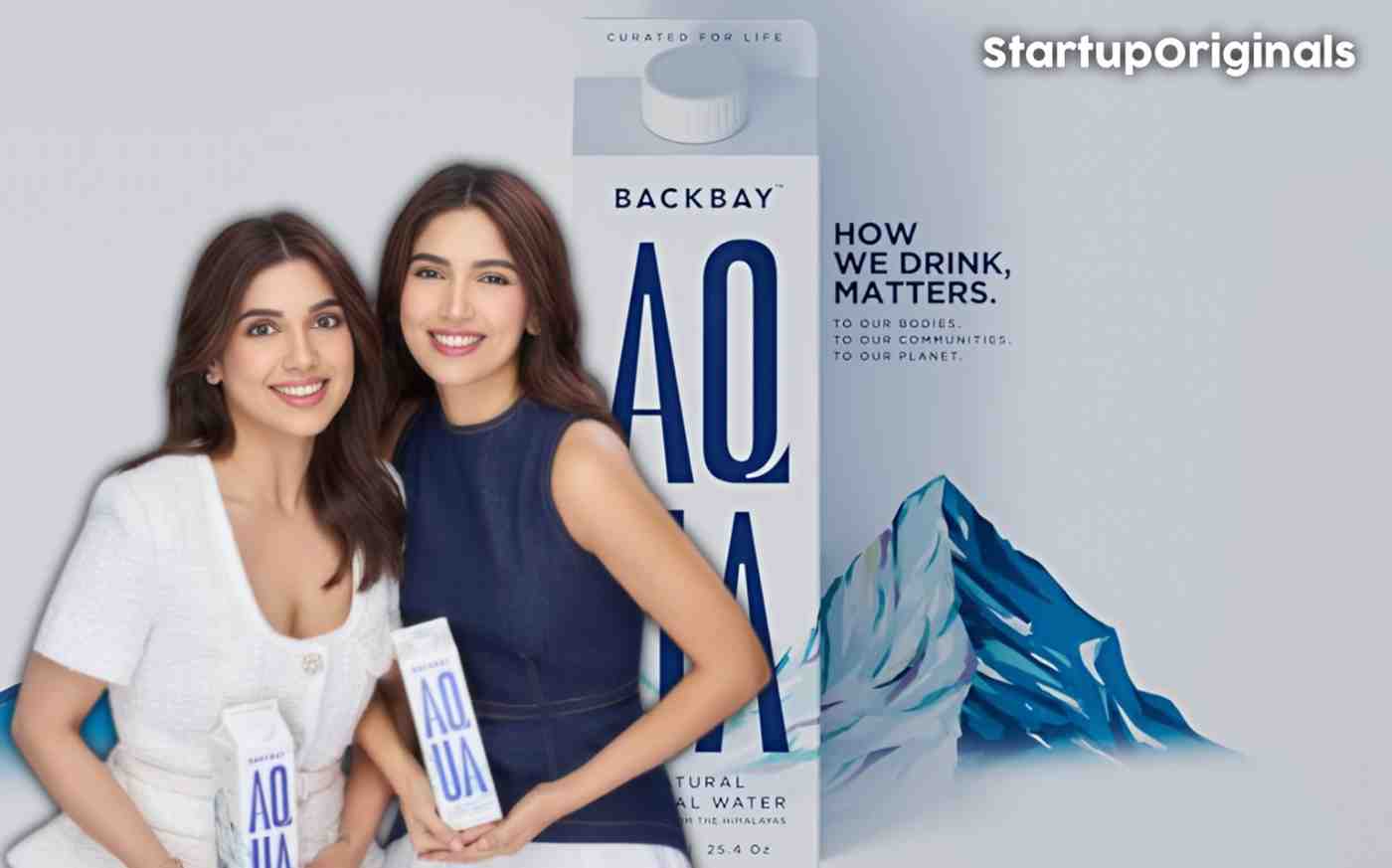
Bollywood actor Bhumi Pednekar, together with her sister Samiksha Pednekar, has launched Backbay-a next-generation beverage brand aiming to reshape India’s premium bottled water market. Inspired by their passion for wellness, sustainability, and conscious consumption, the duo is positioning Backbay as both a clean-label hydration solution and a climate-conscious brand experience.
The Vision Behind Backbay:
Bhumi and her sister saw an opportunity in the bottled water space, a sector they felt was outdated and lacking innovation, especially in terms of trust and sustainability. Despite water being the most basic beverage, most market options come in single-use plastic or costly glass bottles. Driven by the need for cleaner, safer, and planet-friendly options, the Pednekar sisters designed Backbay to be much more than a product-it stands for purpose, purity, and conscious living.
Product Features and Packaging:
- Mineral-Rich Himalayan Water: Backbay sources its water from glacial melt in a protected Himalayan reservoir, ensuring it’s naturally rich in minerals such as magnesium, calcium, and potassium.
- Bottled at Source: Water is bottled directly at a women-led facility in Himachal Pradesh, designed to uphold the brand’s values of gender diversity and rural empowerment.
- Innovative, Sustainable Packaging: Unlike the market norm of PET bottles or pricy glass, Backbay is packaged in eco-friendly Gable Top Paper cartons with bio caps-both biodegradable and unique in India’s sector-minimizing both plastic waste and environmental impact.
Pricing Strategy:
Backbay offers two main sizes:
- 500ml pack at ₹150
- 750ml pack at ₹200
Positioned between high-end plastic bottles (up to ₹90) and luxury glass bottles (as high as ₹600), Backbay targets premium consumers but seeks to remain “accessible”-a move that triggered both praise for innovation and criticism online for its high price point.
Business Operations and Expansion Plans
- Self-Funded and Women-led: Bhumi invested her own savings in the project, with the manufacturing unit relying on a mostly female workforce.
- Capacity and Distribution: The Himachal facility can produce up to 45,000 boxes per day. Sales will launch in select urban centers and on leading quick-commerce platforms such as Swiggy Instamart, Zepto, and Amazon.
- Future Products: The brand is not limiting itself to still water. Flavored sparkling waters (lychee, peach, lime) are in advanced development, indicating Backbay’s ambition to become a broad-based premium beverage label.
Market Impact and Public Response:
Backbay’s entry coincides with rapidly rising consumer awareness around health and sustainability, as more Indians move away from sugary sodas and microplastics towards consciously sourced drinks. The premium hydration sector in India is projected to grow at a CAGR of 13.2% through 2028, making this a timely launch.
However, not all reactions have been glowing. Many online commenters have mocked the idea of “accessible” water packs at ₹200, questioning their practicality for average consumers. Others have pointed out that consumers preferring high-priced water may still lean towards established international brands. Despite this, the brand has carved out a niche for eco-conscious, design-forward, and health-focused consumers willing to pay a premium for environmental and social impact.
The Road Ahead:
Bhumi and Samiksha’s goal is bold: achieve ₹100crore in revenue within four years and establish Backbay as a household name in premium, sustainable hydration. Their confidence is rooted in strong values-integrity, sustainability, and a belief that “what you drink should be as pure for you as it is for the earth”.
Conclusion:
Backbay blends the ethos of conscious entrepreneurship with innovative packaging and product purity. While its high price point has attracted debate, the brand aspires to lead India’s clean beverage segment towards a more sustainable, transparent, and inclusive future. Whether Backbay can scale its eco-premium vision remains to be seen, but it has already sparked conversations about how water-and business-should flow in the modern age.



